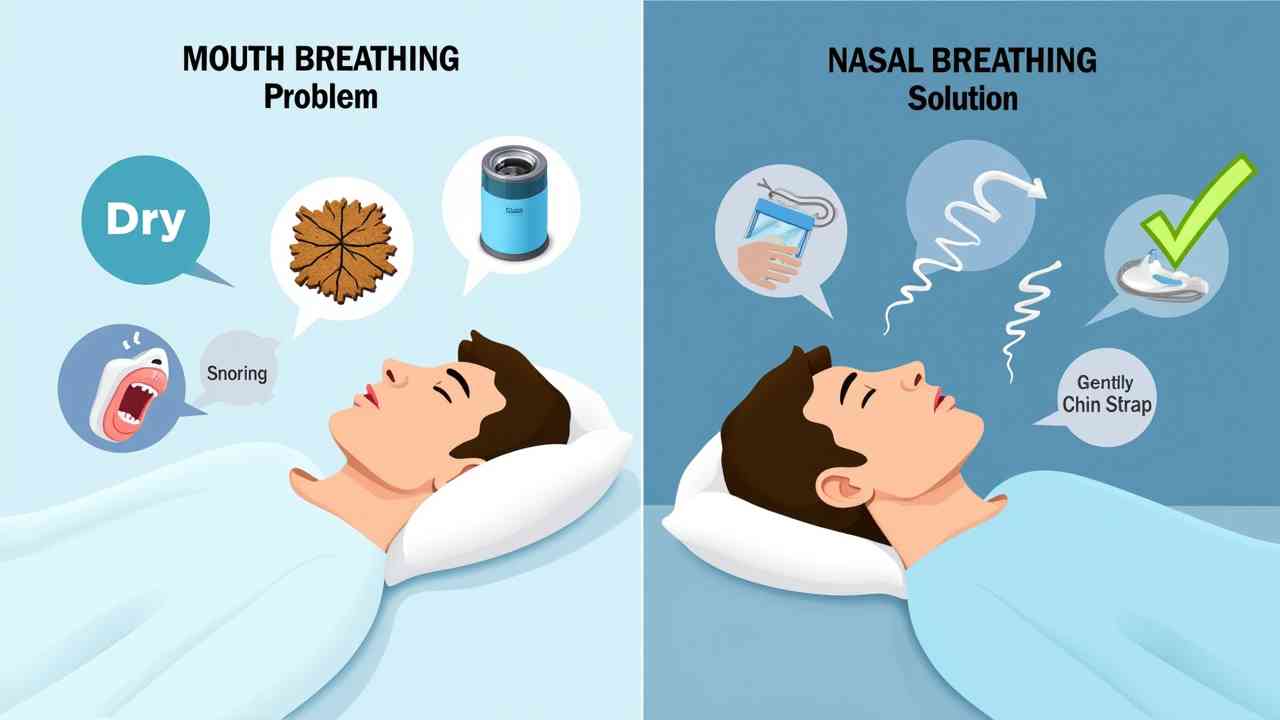
👄 How to Keep Your Mouth Closed While Sleeping (A Doctor's Guide)
👄 A Doctor's Guide to Keeping Your Mouth Closed While Sleeping 👄
Waking up with a desert-dry mouth, a sore throat, and a general feeling of fatigue is a common complaint. It's a clear sign you're sleeping with your mouth open. While it might seem like a harmless habit, chronic mouth breathing can lead to health problems. It can cause bad breath, increase your risk of cavities, and worsen snoring.
Before you can fix it, you need to know the cause. The #1 reason is simple: you can't get enough air through your nose. Nasal congestion from allergies or a cold is a major culprit. Structural issues like a deviated septum can also be to blame. For others, it's simply a habit, where the jaw relaxes open during sleep.
- What Are the Best Ways to Promote Nasal Breathing?
The key is to address the reason you're mouth breathing. Here are the most effective strategies, from simple fixes to dedicated tools.
1. Treat Your Nasal Congestion
If you're stuffed up, you must treat the congestion. A saline nasal rinse before bed can help to clear out mucus. Running a cool-mist humidifier in your bedroom can add moisture to dry air, which is especially helpful in the autumn. Nasal strips, which are adhesive strips that go on the outside of your nose, are also a fantastic, drug-free way to gently pull your nasal passages open.
2. Use a Supportive Pillow
Sleeping on your back, especially with a flat pillow, can cause your jaw to relax and fall open. Try sleeping on your side. If you stay on your back, use a supportive pillow (like a cervical pillow) that keeps your head and neck in a stable, aligned position.
3. Try a Chin Strap
A sleep chin strap is a simple, effective tool. It's a soft, elastic strap that goes around your head and under your chin. It provides gentle, upward support to keep your jaw closed while you sleep, encouraging your body to breathe through your nose.
4. What About 'Mouth Taping'? ⚠️
This is a popular trend, but you must be very cautious. It involves placing a special, porous tape over your lips to seal them. You must NOT try this if you have any nasal congestion. It can be dangerous if you can't breathe properly through your nose. It is crucial to talk to your doctor before ever trying this method, especially if you suspect you might have sleep apnea.
If you are a chronic mouth breather, the best first step is to see a doctor or an Ear, Nose, and Throat (ENT) specialist. They can determine the cause of your nasal obstruction and recommend the most effective treatment. S̉